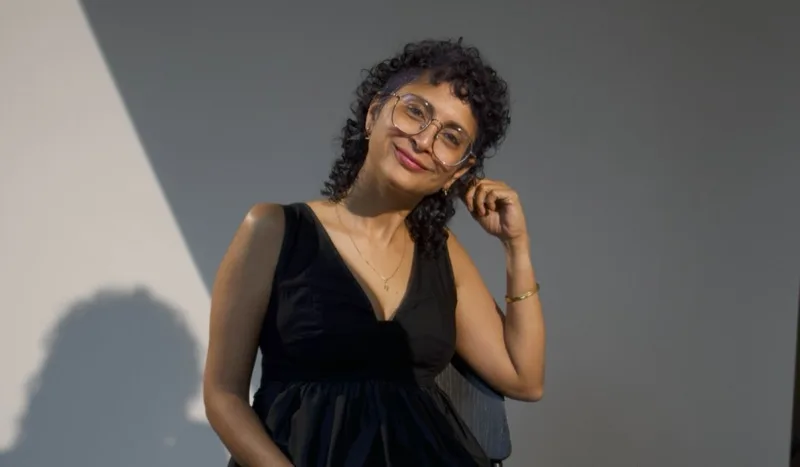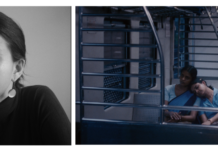
“I do think international audiences will enjoy this film as much, or, if not more than an Indian audience because I think, they’re not necessarily looking for stars when they’re watching the film, they’re looking for a good story and interesting characters and situations.“
Q How was the whole experience for you for creating the film ‘Laapataa Ladies’ and what was the conceptualisation behind it when you collaborated with the writers and the crew of the film?
Kiran Rao: The journey started with Amir who found the script in 2018, he was on the jury for a screenwriting competition when this script was submitted. The original story was written by a writer called Vipalabh Goswami. It’s a wonderful little tale where these two girls get swapped on a train and find that they are on a little adventure almost to find themselves.
So I loved the idea, I loved the story. And I wanted to develop it further. I wanted to add some humour, add some characters, and change some of the existing characters. And so in 2020, I started working with Sneha Desai, a writer who’s done a lot of work in television and theatre. And this is her first film.
She brought all these characters to life, and created a real screenplay full of twists and turns and, you know, a lot of humour, which was very important.
And then, we brought on a writer called Divya Nidhi Sharma to add some, and develop some characters further, like the character of Ravi Kishan, the policeman Manohar, and also to work a little bit on the Bhojpuri dialect that the characters speak.
So it took us a year to write. And I find I feel very grateful that I had such a great writing team to, you know, sort of explore various ideas, create very characters that I feel are very fresh and new and have their own voices in this film. So yeah, it was actually a combination of a lot of people to get the script to the right place.
Q What were the factors that you were looking for in talent when you were looking for casting for this film?
Kiran Rao: The big thing was to decide whether we wanted to cast well-known faces or whether we wanted to go with people who were completely just suited to the character and had no particular stardom or anything attached to them.
So, when we did decide to go with fresh faces, we brought on a casting director called Romil, who cast the net very far and wide on social media and started getting auditions from all over the country.
What I was looking for were people who would embody in some way, a very kernel of the character in even the way they looked, and even the way they were personally.
It was not just about finding the right actor, but actors who could physically sort of fit or embody the idea of the character.
We needed people who, you know, you could just literally feel these characters in their faces.
We were looking for people from around, like a wide spectrum of different kinds of faces. But people obviously who would fit this milieu would fit the age group, of course, but like more feel authentic to where this story is set.
Q: How would you want this film to resonate with the international audience?
Kiran Rao: I think internationally, people are interested to see something authentic, something that will give them a glimpse into, I feel something that’s both visually and culturally rich with, you know, both character as well as situations and culture.
I do think international audiences will enjoy this film as much or if not more than an Indian audience because I think, they’re not necessarily looking for stars when they’re watching the film, they’re looking for a good story and interesting characters and situations.
Q: What were the key messages or themes you aimed to convey through the narrative?
Kiran Rao: I do think that this film touches upon a range of sort of ideas and issues that we face in this country, and perhaps women face everywhere in the world.
It examines patriarchy, it examines women’s identity or lack of identity, and exercising women’s choice in how they live their lives. Sisterhood and celebration of, you know, women supporting each other is also one of the themes that the film touches upon.
I believe one of the strengths of the film is that even the male protagonist is a very interesting and unusual man compared with what we see today’s heroes portraying; you know, he’s a vulnerable, emotional, and, you know, very upright guy, but unafraid to cry, unafraid to kind of feel very, very sort of devastated when he loses his wife.
I kind of feel like it really in that sense touches upon a new, the new man or a different kind of masculinity that I feel also needs to be celebrated.
Q: What’s been your favourite moment?
Kiran Rao: I think a lot of the moments that we shot with the girls on their own or behind the scenes trying to plot out things are my favourite moments in the film. And they always resonated very deeply with me, because I feel we don’t get enough opportunity to kind of explore, you know, sort of women’s dreams and desires. Those moments always were wonderful, while I was there on set, but also always moved me when I saw them on screen.















